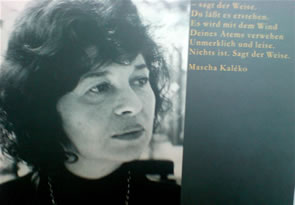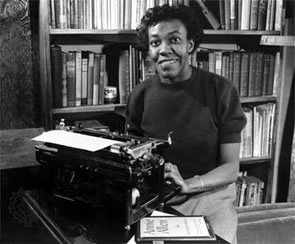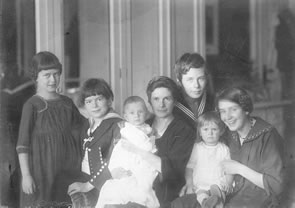De Turkse schrijver Orhan Pamuk werd geboren op 7 juni 1952 in Istanbul. Zie ook mijn blog van 12 oktober 2006 en ook mijn blog van 7 juni 2007.
Uit: Istanbul
Memories and the City
“From a very young age, I suspected there was more to my world than I could see: Somewhere in the streets of Istanbul, in a house resembling ours, there lived another Orhan so much like me that he could pass for my twin, even my double. I can’t remember where I got this idea or how it came to me. It must have emerged from a web of rumors, misunderstandings, illusions, and fears. But in one of my earliest memories, it is already clear how I’ve come to feel about my ghostly other.
When I was five I was sent to live for a short time in another house. After one of their many stormy separations, my parents arranged to meet in Paris, and it was decided that my older brother and I should remain in Istanbul, though in separate places. My brother would stay in the heart of the family with our grandmother in the Pamuk Apartments, in Niflantaflý, but I would be sent to stay with my aunt in Cihangir. Hanging on the wall in this house–where I was treated with the utmost kindness–was a picture of a small child, and every once in a while my aunt or uncle would point up at him and say with a smile, “Look! That’s you!”
The sweet doe-eyed boy inside the small white frame did look a bit like me, it’s true. He was even wearing the cap I sometimes wore. I knew I was not that boy in the picture (a kitsch representation of a “cute child” that someone had brought back from Europe). And yet I kept asking myself, Is this the Orhan who lives in that other house?
Of course, now I too was living in another house. It was as if I’d had to move here before I could meet my twin, but as I wanted only to return to my real home, I took no pleasure in making his acquaintance. My aunt and uncle’s jovial little game of saying I was the boy in the picture became an unintended taunt, and each time I’d feel my mind unraveling: my ideas about myself and the boy who looked like me, my picture and the picture I resembled, my home and the other house–all would slide about in a confusion that made me long all the more to be at home again, surrounded by my family.
Soon my wish came true. But the ghost of the other Orhan in another house somewhere in Istanbul never left me. Throughout my childhood and well into adolescence, he haunted my thoughts. On winter evenings, walking through the streets of the city, I would gaze into other people’s houses through the pale orange light of home and dream of happy, peaceful families living comfortable lives. Then I would shudder to think that the other Orhan might be living in one of these houses. As I grew older, the ghost became a fantasy and the fantasy a recurrent nightmare. In some dreams I would greet this Orhan–always in another house–with shrieks of horror; in others the two of us would stare each other down in eerie merciless silence. Afterward, wafting in and out of sleep, I would cling ever more fiercely to my pillow, my house, my street, my place in the world. Whenever I was unhappy, I imagined going to the other house, the other life, the place where the other Orhan lived, and in spite of everything I’d half convince myself that I was he and took pleasure in imagining how happy he was, such pleasure that, for a time, I felt no need to go to seek out the other house in that other imagined part of the city.”

Orhan Pamuk (Istanbul, 7 juni 1952)
De Amerikaanse dichteres Yolande Cornelia “Nikki” Giovanni werd geboren op 7 juni 1943 in Knoxville, Tennessee. Zie ook mijn blog van 7 juni 2007.
I’m Not Lonely
i’m not lonely
sleeping all alone
you think i’m scared
but i’m a big girl
i don’t cry
or anything
i have a great
big bed
to roll around
in and lots of space
and idon’t dream
bad dreams
like i used
to have that you
were leaving me
anymore
now that you’re gone
i don’t dream
and no matter
what you think
i’m not lonely
sleeping
all alone
Seduction
one day
you gonna walk in this house
and i’m gonna have a long African
gown
you’ll sit down and say “The Black…”
and i’m gonna take one arm out
then you-not noticing me at all- will say “What about this brother…”
and i’m going to be slipping it over my head
and you’ll rap on about “The revolution…”
while i rest your hand against my stomach
you’ll go on-as you always do- saying
“I just can’t dig…”
while i’m moving your hand up and down
and i’ll be taking your dashiki off
then you’ll say “What we really need…”
and taking your shorts off
the you’ll notice
your state of undress
and knowing you you’ll just say
“Nikki/
isn’t this counterrevolutionary…”

Nikki Giovanni (Knoxville, 7 juni 1943)
De Duitstalige dichteres Mascha Kaléko (eig. Golda Malka Aufen) werd geboren op 7 juni 1907 in Krenau of Schidlow in Galicië in het toenmalige Oostenrijk-Hongarije, nu Polen. Zie ook mijn blog van 7 juni 2007.
Herbstabend
Nun gönnt sich das Jahr eine Pause.
Der goldne September entwich.
Geblieben im herbstlichen Hause
Sind nur meine Schwermut und ich.
Verlassen stehn Wiese und Weiher,
Es schimmert kein Segel am See.
Am Himmel nur Wildgans und Geier
Verkünden den kommenden Schnee.
Schon rüttelt der Wind an der Scheune.
Im Dunkel ein Nachtkäuzchen schreit.
Ich sitze alleine beim Weine
Und vertreib mir die Jahreszeit…
Im Gasthaus verlischt eine Kerze.
Verspätet spielt ein Klavier.
– Dem ist auch recht bange ums Herze.
Adagio in Moll – so wie mir.
Der Abend ist voller Gespenster,
Es poltert und knackt im Kamin.
Ich schließe die Läden am Fenster
Und nehme die Schlafmedizin.

Mascha Kaléko (7 juni 1907 – 21 januari 1975)
De Amerikaanse dichteres Gwendolyn Brooks werd geboren op 7 juni 1917 in Topeka, Kansas. Zie ook mijn blog van 7 juni 2007.
The Crazy Woman
I shall not sing a May song.
A May song should be gay.
I’ll wait until November
And sing a song of gray.
I’ll wait until November
That is the time for me.
I’ll go out in the frosty dark
And sing most terribly.
And all the little people
Will stare at me and say,
“That is the Crazy Woman
Who would not sing in May.”
The Mother
Abortions will not let you forget.
You remember the children you got that you did not get,
The damp small pulps with a little or with no hair,
The singers and workers that never handled the air.
You will never neglect or beat
Them, or silence or buy with a sweet.
You will never wind up the sucking-thumb
Or scuttle off ghosts that come.
You will never leave them, controlling your luscious sigh,
Return for a snack of them, with gobbling mother-eye.
I have heard in the voices of the wind the voices of my dim killed
children.
I have contracted. I have eased
My dim dears at the breasts they could never suck.
I have said, Sweets, if I sinned, if I seized
Your luck
And your lives from your unfinished reach,
If I stole your births and your names,
Your straight baby tears and your games,
Your stilted or lovely loves, your tumults, your marriages, aches,
and your deaths,
If I poisoned the beginnings of your breaths,
Believe that even in my deliberateness I was not deliberate.
Though why should I whine,
Whine that the crime was other than mine?–
Since anyhow you are dead.
Or rather, or instead,
You were never made.
But that too, I am afraid,
Is faulty: oh, what shall I say, how is the truth to be said?
You were born, you had body, you died.
It is just that you never giggled or planned or cried.
Believe me, I loved you all.
Believe me, I knew you, though faintly, and I loved, I loved you
All.

Gwendolyn Brooks (7 juni 1917 – 3 december 2000)
De Ierse schrijfster Elizabeth Bowen werd geboren op 7 juni 1899 in Dublin. In 2006 verscheen een biografie over haar door Victoria Glendinning. Zie ook mijn blog van 7 juni 2007.
Uit: Elizabeth Bowen: A Biography
„Elizabeth inherited Bowen’s Court on her father’s death in 1930. The house, despite its many perfections, was not comfortable in the modem sense until, after the success of The Heat of the Day in 1949, Elizabeth spent some money on it and put in bathrooms. A little later, planning to live permanently at Bowen’s Court instead of being based in England, she did more; the big drawing-room was embellished with curtains made, incredibly, of pink corset-satin: “A very good pink that goes beautifully”, C. V. Wedgwood wrote to Jacqueline Hope-Wallace in December, 1953, “the kind of satin that grand shops make corsets and belts of; some local director of Debenha
ms found they had bales and bales of it left over–actually you would never think of it, but once you have been told you can think of nothing else!”
But even in earlier, more spartan days, Bowen’s Court, when Elizabeth was there, was full of people and talk and life. The summer of 1936, for example. On September 25th of that year, Elizabeth wrote to describe her summer to the critic and editor John Hayward, who had written to her from London that “my little world turns very slowly in your absence”. Early in August, Lord David Cecil and his wife, Rachel, had been to stay for ten days. “I like Rachel so particularly much, and David’s really my oldest, securest friend”. The three of them had talked non-stop, she said, “without fatigue, suspicion, exhibitionism, strain, unseemly curiosity or desire to impress”. And after the Cecils left more came–the house had been full, which created a problem because although there was lots of space there was not much furniture:…”

Elizabeth Bowen (7 juni 1899 – 22 februari 1973)
De Duitse schrijfster Monika Mann werd als vierde kind van Thomas Mann geboren op 7 juni 1910 in München. Zie ook mijn blog van 7 juni 2007.
Uit: Vergangenes und Gegenwärtiges
„“Mama ging als indische Prinzessin und Papa in einem Talar angetan von buntglühendem Glanze – schwarze Schulterlocken, gewaltige Augenbrauen und silberne Spitzpantoffeln -, so zeigte er sich, Zauberstab in der funkelberingten Hand, mit hämischem Grinsen bei uns, die wir vor Überraschung und Vergnügen jauchzten und ihn von der Stunde an den ‘Zauberer’ nannten.”
……
“Trotz aller Erfahrungen, trotz allen Wissens weiß er nichts. Denn Wissen ist nichts Fixiertes, sondern aus den Tiefen des Augenblicks zu Erhaschendes. Er hat es nicht parat, wie sein Partner, und zunächst nichts anderes ihm entgegenzuhalten als Ignoranz, was dieser für Hohn hält…
“Gegenüber dieser Ironie sieht man leicht das eigene, mühsam gezimmerte Wissen, Urteil und Ideal sich vernebeln, entführt in die Sphären des Intuitiven, die unermeßlich und gefahrvoll sind. Sogar die ethischen Werte schwinden dahin in jenen reinen und gesetzlosen Sphären: Auch die Moral ist nicht formelhaft, fixiert, tot, sondern schwebt und lebt auf wunderbare und etwas furchtbare Weise. Bei allem wahren Abscheu vor dem Bösen hat er auch hier das Urteil, die Verurteilung nicht parat… Übrigens, das rein logische, mathematische Denken ist ihm fremd.”

Monika Mann (7 juni 1910 – 17 maart 1992)
Kinderen Mann met moeder Katia, Monika geheel links
De Amerikaanse schrijver Harry Crews werd geboren op 7 juni 1935 in Bacon County, Georgia. Zie ook mijn blog van 7 juni 2007.
Uit: A Childhood: The Biography of a Place
„So about the best chance I had was the sort that usually picks up boys wearing washed-out bib overalls with both knees worn out. It goes without saying but I’ll say it anyway, you had to be careful with those suckers. It seemed when you were hitchhiking that men alone in pickups or cars had never heard of women and pussy. And if any one of them ever starts to talking about how much pussy he gets, or he just knows a young stud when he sees one and he bets you get a lot of gash, wait for the next red light and get out. Or if he takes a corner really slowly or has to stop for a crosswalk, bail out.
This sounds chickenshit, but if he turns off a paved road for no reason and goes down a dirt road into the woods, you might as well just give it up. The chances are on your side, if you don’t make a fuss or a fight and pretend (which at times is not all that hard to do) to like it a little by moaning and groading, that you’ll get away without a mark on you.
Jesus, I can hear the whispers and voices from here: “Crews is a fag, latent or otherwise, but still a fag. I’d never do such a thing. He’d have to kill me.”

Harry Crews (Bacon County, 7 juni 1935)
